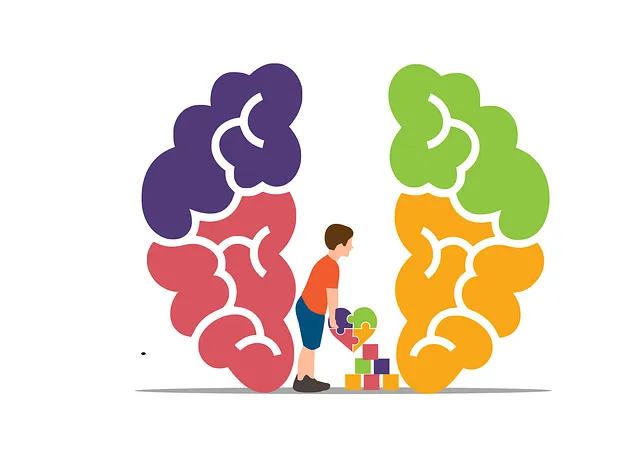Community outreach programs like Kaiser Permanente's in Colorado Springs are crucial for addressing diverse urban populations' mental health concerns. Through public awareness campaigns, self-care education, and coping skills development, these initiatives bridge the gap to accessible mental healthcare services. The program's success empowers individuals to manage their mental well-being and access specialized support promptly. Tailored programs, partnerships with local leaders, and culturally sensitive training ensure lasting impact. Overcoming stigma through educational workshops and engaging podcast series, along with using community leaders from diverse backgrounds, significantly enhances reach and effectiveness. Measuring the impact of these initiatives is vital for continuous improvement and success in mental health awareness and well-being within the community.
Community outreach programs play a pivotal role in enhancing mental health support, especially in underserved areas like Colorado Springs. This article delves into the significance of such initiatives, highlighting Kaiser Permanente’s commitment to improving accessibility in the region. We explore effective strategies for engaging at-risk communities, overcoming barriers to implementation, and measuring the impact of these outreach efforts. By examining real-world cases, this guide offers insights for organizations aiming to foster better mental well-being through community partnerships.
- Understanding Community Outreach: Why It Matters in Mental Health Support
- Kaiser Permanente's Role in Colorado Springs: A Focus on Accessibility
- Designing Effective Programs: Engaging at-risk Communities
- Overcoming Barriers: Strategies for Successful Implementation
- Measuring Impact: Evaluating the Success of Community Outreach Initiatives
Understanding Community Outreach: Why It Matters in Mental Health Support

Community outreach programs play a pivotal role in addressing mental health concerns within diverse populations, especially in urban areas like Colorado Springs. Organizations like Kaiser Permanente recognize the significance of these initiatives in improving access to mental healthcare services. By reaching out to communities directly, they can bridge the gap between those who need support and the available resources. This approach is crucial in tackling the unique challenges faced by different cultural and socioeconomic groups.
Incorporating self-care practices and coping skills development through public awareness campaigns has been proven effective in fostering mental well-being. These programs can provide valuable education, encouraging individuals to take charge of their mental health. For instance, the Kaiser Permanente mental health number in Colorado Springs facilitates a connection between residents and specialized support, ensuring that help is readily accessible when needed.
Kaiser Permanente's Role in Colorado Springs: A Focus on Accessibility

Kaiser Permanente has played a pivotal role in enhancing healthcare accessibility in Colorado Springs, focusing significantly on mental health services. As a leading healthcare provider, they have recognized the unique challenges faced by the community regarding emotional well-being. In response, Kaiser Permanente has implemented several initiatives aimed at improving mental health outcomes for residents across the region.
One of their key contributions is offering comprehensive programs that teach Stress Reduction Methods and Emotional Regulation techniques tailored to diverse populations. Through these programs, individuals gain valuable Self-Awareness Exercises, empowering them to navigate life’s challenges more effectively. This proactive approach not only addresses immediate mental health concerns but also fosters long-term resilience among participants.
Designing Effective Programs: Engaging at-risk Communities

Designing effective community outreach programs requires a deep understanding and engagement with at-risk populations. Organizations like Kaiser Permanente in Colorado Springs have recognized the importance of addressing mental health issues within these communities, often overlooked due to various barriers such as social isolation and lack of access to resources. Implementing programs that foster social skills training and self-awareness exercises can empower individuals, helping them develop inner strength and resilience.
By tailoring initiatives to meet the unique needs of at-risk groups, organizations can ensure their outreach efforts have a lasting impact. This might involve collaborative partnerships with local community leaders, cultural sensitivity training for staff, and offering programs that address not just mental health but also socio-economic challenges. Incorporating evidence-based practices and regularly gathering feedback from participants ensures these initiatives remain effective and responsive to the evolving needs of Colorado Springs’ diverse communities.
Overcoming Barriers: Strategies for Successful Implementation

Overcoming barriers is a critical aspect of implementing successful community outreach programs, especially when focusing on mental health initiatives like those offered by Kaiser Permanente in Colorado Springs. One significant challenge lies in addressing the stigma surrounding mental illness, which often deters individuals from seeking support. To counter this, organizations can employ various strategies such as hosting educational workshops and promoting engaging Mental Wellness Podcast Series Production to raise awareness and encourage open conversations.
Additionally, tailoring outreach efforts to meet the unique needs of diverse communities is essential. This may involve adapting communication methods, ensuring accessibility, and fostering trust through culturally sensitive programs. For instance, utilizing community leaders and peers who can relate to the target audience can significantly enhance program effectiveness. By implementing these strategies, initiatives like Kaiser Permanente’s mental health number in Colorado Springs can effectively reach and support a broader spectrum of individuals, contributing to broader Mental Illness Stigma Reduction Efforts and improved Emotional Healing Processes within the community.
Measuring Impact: Evaluating the Success of Community Outreach Initiatives

Measuring the impact of community outreach initiatives is crucial to understanding their success and identifying areas for improvement. Organizations like Kaiser Permanente in Colorado Springs have recognized the importance of evaluating these programs, especially when addressing pressing issues such as mental health awareness. By implementing robust evaluation strategies, they can assess the reach and effectiveness of their outreach efforts.
This process involves tracking key performance indicators (KPIs), collecting feedback from participants and stakeholders, and analyzing data to gauge the long-term impact. For instance, a successful community outreach program focused on Burnout Prevention Strategies for Healthcare Providers might measure improvements in emotional intelligence and inner strength development among attendees. Such evaluations ensure that initiatives are not only reaching their intended audience but also fostering meaningful change, ultimately enhancing the overall well-being of both the community and healthcare providers.
Community outreach programs, as demonstrated by Kaiser Permanente’s initiative in Colorado Springs, are vital for enhancing mental health support and accessibility. By engaging at-risk communities and overcoming barriers, these programs can significantly impact positive outcomes. In light of the growing need for such initiatives, understanding how to design effective programs and measure their success is crucial. The strategies outlined, including those from Kaiser Permanente’s successful model, serve as a guide for organizations aiming to improve mental health services in their respective regions, ultimately fostering healthier communities.






